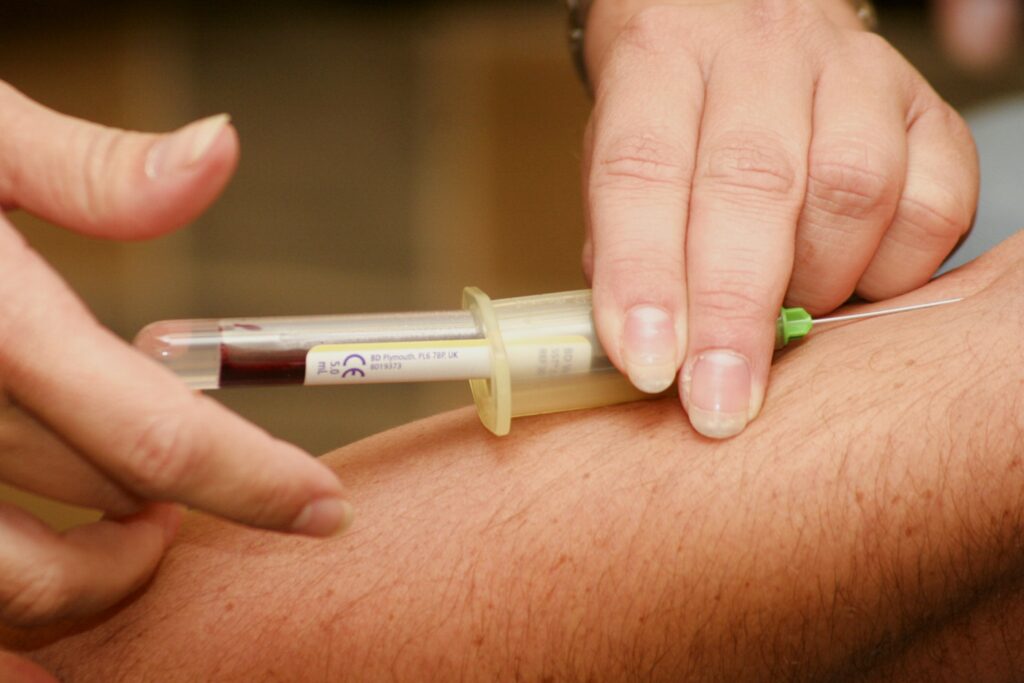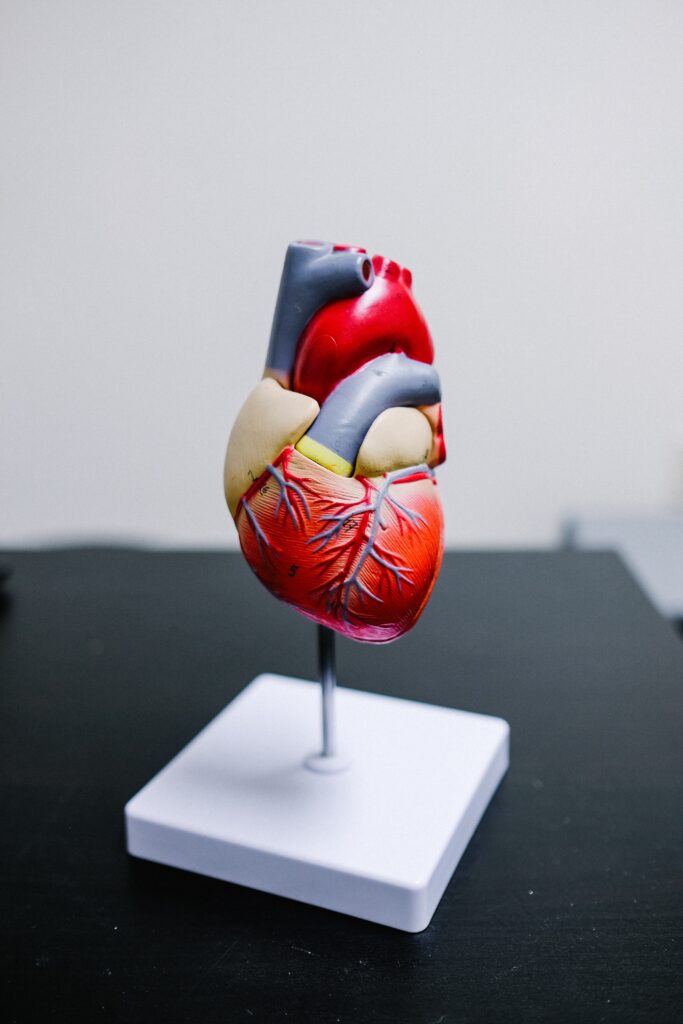If you’re looking for ways to improve your heart health, making dietary changes is a great place to start. High cholesterol levels can increase your risk of heart disease, but the good news is that with some simple adjustments to your diet, you can lower your cholesterol levels and improve your overall well-being. By choosing heart-healthy foods, reducing saturated and trans fats, increasing fiber intake, and incorporating more omega-3 fatty acids, you can make a significant impact on your cholesterol levels and promote a healthier heart. So, let’s explore some easy and effective dietary changes that can help you lower your cholesterol levels and lead a healthier life.

Understanding Cholesterol
Definition of Cholesterol
Cholesterol is a waxy substance that is found in the cells of your body. It is a type of fat that is essential for the proper functioning of many bodily processes. While cholesterol is naturally produced by your liver, it can also be obtained through certain foods. It plays a crucial role in the production of hormones, vitamin D, and bile acids.
Importance of Cholesterol in the body
Cholesterol is essential for the body as it helps in the formation of cell membranes and plays a vital role in the production of hormones such as estrogen and testosterone. Additionally, it is involved in the production of vitamin D, which is crucial for bone health. Cholesterol is also necessary for the production of bile acids, which aid in the digestion and absorption of fats.
Dangers of High Cholesterol
While cholesterol is important for various bodily functions, having high levels of cholesterol can pose serious health risks. High cholesterol can lead to the accumulation of plaque in the arteries, a condition known as atherosclerosis. This can restrict blood flow to the heart and other vital organs, increasing the risk of heart disease, heart attacks, and strokes. It is important to monitor and manage cholesterol levels to maintain good cardiovascular health.
Differences between LDL and HDL
When it comes to cholesterol, it is important to understand the difference between LDL (low-density lipoprotein) and HDL (high-density lipoprotein). LDL cholesterol is often referred to as “bad” cholesterol because it can contribute to the buildup of plaque in the arteries. On the other hand, HDL cholesterol is known as “good” cholesterol as it helps remove excess cholesterol from the bloodstream. Maintaining a balance between the two is crucial for maintaining optimal cholesterol levels.
How Diet Affects Cholesterol
Impact of Fatty Foods
The foods you consume can have a significant impact on your cholesterol levels. Foods that are high in saturated and trans fats, such as fried foods, processed snacks, and fatty meats, can increase LDL cholesterol levels. It is important to limit the intake of these types of foods to help manage cholesterol levels and reduce the risk of cardiovascular diseases.
The role of Cholesterol in Digestion
Cholesterol also plays a role in digestion. It is converted into bile acids in the liver, which are then released into the digestive system to help break down fats and aid in their absorption. However, consuming excessive amounts of cholesterol-rich foods can lead to elevated cholesterol levels in the bloodstream, which can be harmful to your health.
Correlation between diet and Cholesterol levels
There is a direct correlation between the diet you follow and your cholesterol levels. Consuming a diet high in saturated and trans fats can increase LDL cholesterol levels, while a diet rich in fruits, vegetables, whole grains, and lean proteins can help lower LDL cholesterol and increase HDL cholesterol levels. It is important to make healthy dietary choices to maintain optimal cholesterol levels.
Influence of genetic factors
While diet plays a significant role in cholesterol levels, genetic factors can also influence your cholesterol levels. Some individuals may have a genetic predisposition to higher cholesterol levels, even if they follow a healthy diet. It is important to be aware of your family history and work closely with healthcare professionals to manage cholesterol levels effectively.
The Link between Obesity and Cholesterol
How excess weight impacts cholesterol levels
Obesity has a direct impact on cholesterol levels. Excess weight, especially around the waistline, can lead to increased levels of LDL cholesterol and triglycerides while reducing the levels of HDL cholesterol. This imbalance can significantly increase the risk of heart disease and other cardiovascular problems.
Obesity and Heart Diseases
Obesity is closely linked to various heart diseases. When excess weight is carried around the midsection, it can lead to an increase in the production of cholesterol by the liver, resulting in high LDL cholesterol. Moreover, obesity can also lead to insulin resistance and diabetes, which further increases the risk of heart diseases.
Role of regular physical activity
Regular physical activity plays a crucial role in maintaining healthy cholesterol levels, especially for individuals struggling with obesity. Engaging in physical exercise helps increase HDL cholesterol levels and reduces LDL cholesterol. It also helps with weight management, improves blood circulation, and reduces the risk of heart diseases. Incorporating regular exercise into your routine can have significant benefits for your cholesterol levels and overall health.
Foods to Avoid
Saturated Fats
Foods that are high in saturated fats should be avoided or consumed in moderation. These include fatty cuts of meat, full-fat dairy products, butter, lard, and tropical oils like coconut oil. Saturated fats can increase LDL cholesterol levels and contribute to the buildup of plaque in the arteries.
Trans fats
Trans fats are another type of unhealthy fat that should be avoided. They are commonly found in fried foods, processed snacks, and commercially baked goods. Trans fats not only increase LDL cholesterol levels but also lower HDL cholesterol levels, making them particularly harmful to cardiovascular health.
Cholesterol-rich foods
While cholesterol in food does not have as significant an impact on blood cholesterol levels as once believed, it is still important to consume cholesterol-rich foods in moderation. These include foods like organ meats, egg yolks, shellfish, and high-fat dairy products. It is best to limit the intake of these foods and opt for healthier alternatives.
Processed Foods and Sugar
Processed foods and sugary beverages should be avoided when trying to manage cholesterol levels. These foods are often high in added sugars, unhealthy fats, and sodium. They can contribute to weight gain, increase LDL cholesterol, and lower HDL cholesterol levels. Opting for whole, unprocessed foods and drinking plenty of water can help maintain a healthier cholesterol profile.

Foods to Include in Your Diet
High Fiber Foods
Including high-fiber foods in your diet can have a positive impact on cholesterol levels. Foods such as whole grains, legumes, fruits, and vegetables are rich in fiber, which can help reduce LDL cholesterol levels. Fiber helps prevent cholesterol absorption in the intestines, allowing it to be eliminated from the body.
Omega-3 Fatty Acids
Omega-3 fatty acids are essential fatty acids that have been shown to have numerous health benefits, including lowering LDL cholesterol levels. Sources of omega-3 fatty acids include fatty fish like salmon and mackerel, walnuts, chia seeds, and flaxseeds. Including these foods in your diet can help improve your cholesterol profile and reduce the risk of heart disease.
Fruits and Vegetables
Consuming a variety of fruits and vegetables is essential for maintaining healthy cholesterol levels. These foods are naturally low in saturated fats and high in fiber, antioxidants, and other beneficial compounds. They help reduce inflammation, prevent plaque buildup in the arteries, and support overall cardiovascular health.
Lean Proteins
Opting for lean proteins like skinless poultry, fish, and legumes can help manage cholesterol levels. These protein sources are low in unhealthy fats and provide essential nutrients without increasing LDL cholesterol levels. Limiting the consumption of red and processed meats can also have a positive impact on cholesterol levels.
Importance of Balanced Diet
Role of Dietary Balance in Cholesterol Management
Maintaining a balanced diet is crucial for managing cholesterol levels effectively. A diet that includes a variety of healthy foods in appropriate portion sizes helps regulate cholesterol production, absorption, and elimination. It is important to strike a balance between the intake of saturated and unsaturated fats, as well as carbohydrates, proteins, and fiber-rich foods.
Incorporating variety for nutritional completeness
A balanced diet should focus on incorporating a variety of foods from different food groups to ensure nutritional completeness. By including a wide range of fruits, vegetables, whole grains, lean proteins, and healthy fats, you can provide your body with the necessary nutrients while managing cholesterol levels.
Managing portion sizes
In addition to making healthy food choices, managing portion sizes is important for maintaining a balanced diet. Overeating can lead to weight gain and an increase in LDL cholesterol levels. Practicing portion control and being mindful of the quantity of food consumed can help in maintaining a healthy cholesterol profile.

Sample Meal Plans to Lower Cholesterol
Healthy Breakfast options
- Oatmeal topped with fresh berries and a sprinkle of ground flaxseeds
- Greek yogurt with chopped almonds and a drizzle of honey
- Scrambled egg whites with spinach and mushrooms, served with whole wheat toast
Lunch meal ideas
- Grilled chicken breast salad with mixed greens, cherry tomatoes, cucumber, and a lemon vinaigrette
- Quinoa and vegetable stir-fry with tofu or grilled shrimp
- Lentil soup with a side of whole grain bread and a mixed green salad
Dinner suggestions
- Baked salmon with roasted vegetables and quinoa
- Grilled chicken breast with steamed broccoli and brown rice
- Vegetable stir-fry with tofu and brown rice
Healthy snacks throughout the day
- Apple slices with almond butter
- Carrot sticks with hummus
- Greek yogurt with a handful of mixed nuts
The Role of Hydration
Benefits of Drinking Water
Proper hydration is essential for overall health, including cholesterol management. Drinking an adequate amount of water helps maintain optimal blood viscosity and promotes the elimination of cholesterol through urine and sweat. It is recommended to drink at least 8 glasses of water per day to stay hydrated.
The impact of Alcohol and Caffeine
While moderate alcohol consumption has been associated with certain health benefits, excessive alcohol intake can negatively impact cholesterol levels. It can raise triglyceride levels and contribute to high LDL cholesterol. Caffeine, on the other hand, does not have a significant impact on cholesterol levels when consumed in moderation.
Importance of avoiding sugary beverages
Sugary beverages like soda, fruit juices, and energy drinks should be avoided when trying to manage cholesterol levels. These drinks are high in added sugars and empty calories, which can contribute to weight gain and increase LDL cholesterol levels. Opting for water, herbal tea, or unsweetened beverages is a healthier choice.

Importance of Regular Check-ups
Monitoring Cholesterol Levels
Regular check-ups and monitoring of cholesterol levels are essential for maintaining good cardiovascular health. This allows healthcare professionals to assess your cholesterol levels and make appropriate recommendations to manage and lower high cholesterol if necessary.
Regular Health Check-up Required
Regular health check-ups are important for overall well-being and early detection of any underlying health issues. They help assess not only cholesterol levels but also other risk factors for heart disease such as blood pressure and blood sugar levels. Regular check-ups can help identify any concerns early on and take necessary steps to manage them effectively.
Understanding the results
When receiving the results of your cholesterol tests, it is important to understand what the numbers mean. Total cholesterol, LDL cholesterol, HDL cholesterol, and triglyceride levels are important indicators of your overall cholesterol profile. Your healthcare provider will help interpret the results and provide recommendations to maintain or improve your cholesterol levels.
Implementation Tips
Starting Slow
Making dietary changes can be overwhelming, so it is important to start slow. Implement small changes gradually, such as swapping unhealthy snacks for healthier options or incorporating more fruits and vegetables into your meals. This approach allows your body and taste buds to adjust to the changes more easily.
Making Sustainable Changes
To successfully manage cholesterol levels, it is crucial to make sustainable changes to your diet and lifestyle. Avoid crash diets or extreme restrictions, as they are difficult to maintain long-term. Instead, focus on adopting a balanced and nutritious eating plan that you can enjoy and sustain over time.
Importance of Consistency
Consistency is key when it comes to managing cholesterol levels. Stick to your healthy eating plan and make it a part of your daily routine. Consistent effort will yield better results and help maintain optimal cholesterol levels in the long run.
Psychological Aspects of Dietary Changes
Making dietary changes can have psychological challenges, such as dealing with cravings or overcoming emotional eating. It is important to address these aspects and seek support if needed. Surround yourself with a supportive network, maintain a positive mindset, and practice self-care to navigate these challenges effectively.
In conclusion, understanding cholesterol and its impact on your health is crucial for managing optimal cholesterol levels and reducing the risk of heart disease. By making dietary changes, such as avoiding unhealthy fats, incorporating healthy foods, and following a balanced eating plan, you can take control of your cholesterol levels. Remember to consult with healthcare professionals for personalized advice and to monitor your cholesterol levels regularly. With commitment and consistency, you can achieve better cardiovascular health and overall well-being.


